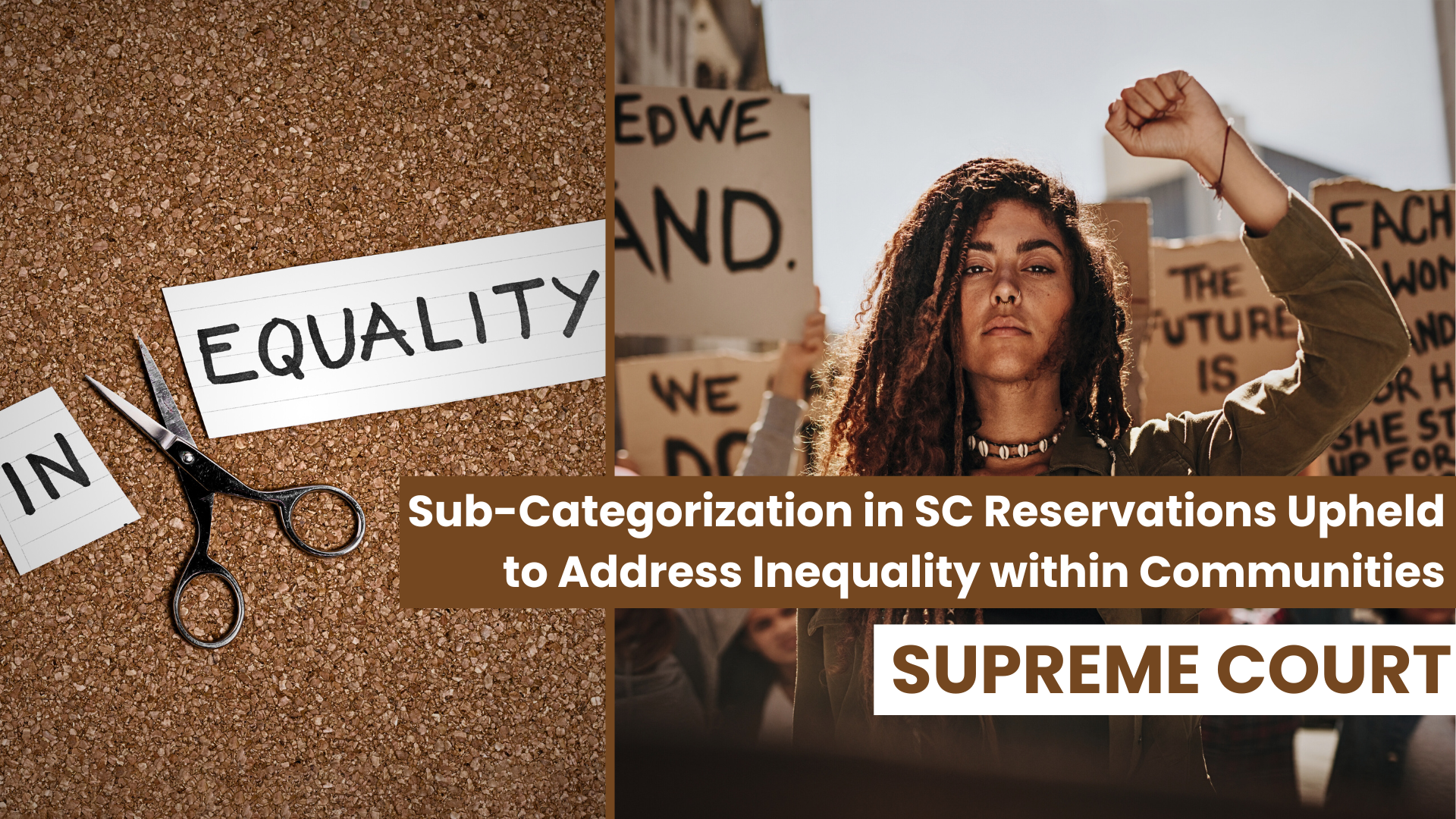
The case of The State of Punjab vs. Davinder Singh revolves around the interpretation of the Constitution’s provisions regarding reservation benefits for Scheduled Castes (SCs) and Scheduled Tribes (STs) and the ability of States to create sub-classifications within these categories for the equitable distribution of reservation benefits.
The primary issue in this case arose from the Punjab government’s decision to create sub-classifications within the SC category, aimed at ensuring that reservation benefits reach the most marginalized groups within the SC community. This policy sought to divide SCs into more specific sub-groups, acknowledging that certain sections within this category had historically been more oppressed and underrepresented compared to others.
Davinder Singh and others challenged this policy, arguing that it violated the constitutional framework, which does not allow for such sub-classification within SCs and STs. The petitioners argued that once a group is designated as SC or ST, all members of that group must be treated equally in terms of benefits, and any sub-classification would breach the equality principle enshrined in Articles 14 (Right to Equality), 15 (Prohibition of Discrimination), and 16 (Equality of Opportunity in Public Employment) of the Indian Constitution.
The State of Punjab defended its decision by arguing that despite the constitutional reservation framework, certain groups within the broader SC category continued to face greater disadvantages compared to others. To ensure that these historically marginalized groups also receive adequate representation and benefits from the reservation policy, sub-classification was essential. The State argued that the equality guaranteed under the Constitution must not only be formal equality but substantive equality, allowing for differentiation where necessary to achieve true social justice.
Davinder Singh and the petitioners opposed the policy on the grounds that sub-classification within the SC category violated the principle of equality. They argued that the Constitution only permits reservation for SCs as a homogeneous category and does not allow for the creation of further divisions or categories within it. The petitioners contended that this could lead to unjust treatment and would defeat the purpose of reservation, which is to provide equal opportunity to all SCs.
The Supreme Court in its judgment upheld the State of Punjab's policy of sub-classification within the SC category. The Court recognized that the Constitution allows for affirmative action in favor of SCs and STs to ensure their representation and upliftment, and creating sub-classifications to ensure equitable distribution of benefits was in line with the objectives of reservation. The judgment stressed that while Articles 14, 15, and 16 guarantee equality, these provisions also allow the State to take necessary steps to provide substantive equality by recognizing the different levels of deprivation faced by various sub-groups within the SC category.
The Court referred to earlier judgments, including E.V. Chinnaiah vs. State of Andhra Pradesh 2004 INSC 644, which had dealt with similar issues, and concluded that sub-classification is permissible as long as it is aimed at ensuring social justice and fair distribution of benefits to those most in need within the SC category.
The State of Punjab vs. Davinder Singh 2024 INSC 562

